Resuscitology: learning, connection, and positive change
Guest author Cliff Reid (@cliffreid) is an emergency physician and prehospital/ retrieval physician with Sydney HEMS. He is the creator of Resus.ME, and co-creator of the RAGE podcast and the Resuscitology course. Chris Nickson (LITFL co-editor) collaborates with Cliff on the RAGE podcast and the Resuscitology projects.
You don’t need to go to conferences to listen to speakers. Since SMACC, many conferences can be followed in real time on Twitter, or can be heard or viewed later online for free.
You don’t need to pay to go to courses to learn about resuscitation. There is a wealth of up to date, cutting edge clinical information here on LITFL and on many blogs.
Resuscitology isn’t really a course or a conference though. It’s a gathering of like-minded Resuscitationists who want to learn from each other on how to optimise their practice. Resuscitology is facilitated by Cliff Reid, Natalie May, Chris Nickson, Brian Burns, Karel Habig, and Geoff Healy. They’ve done a fair bit of teaching and presenting and writing in their time, and between them work across all critical care domains from prehospital through to the ICU. What unites them at Resuscitology is their shared belief that the best learning comes from the most evocative cases – our triumphs and our disasters – and sharing these as a group provides a powerful learning environment.
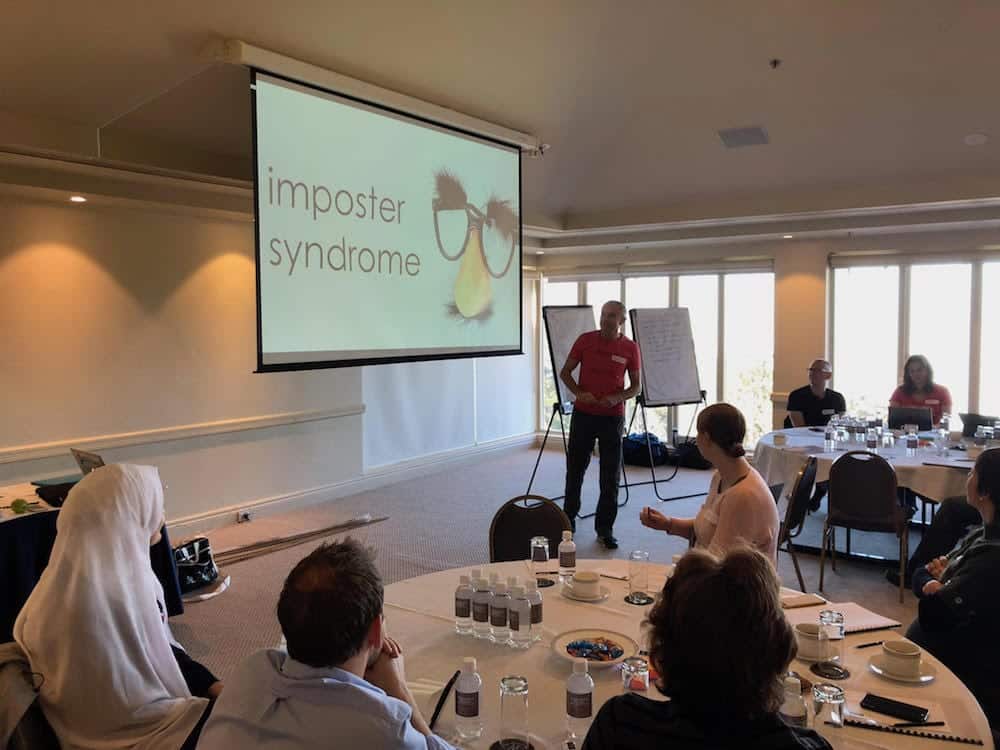
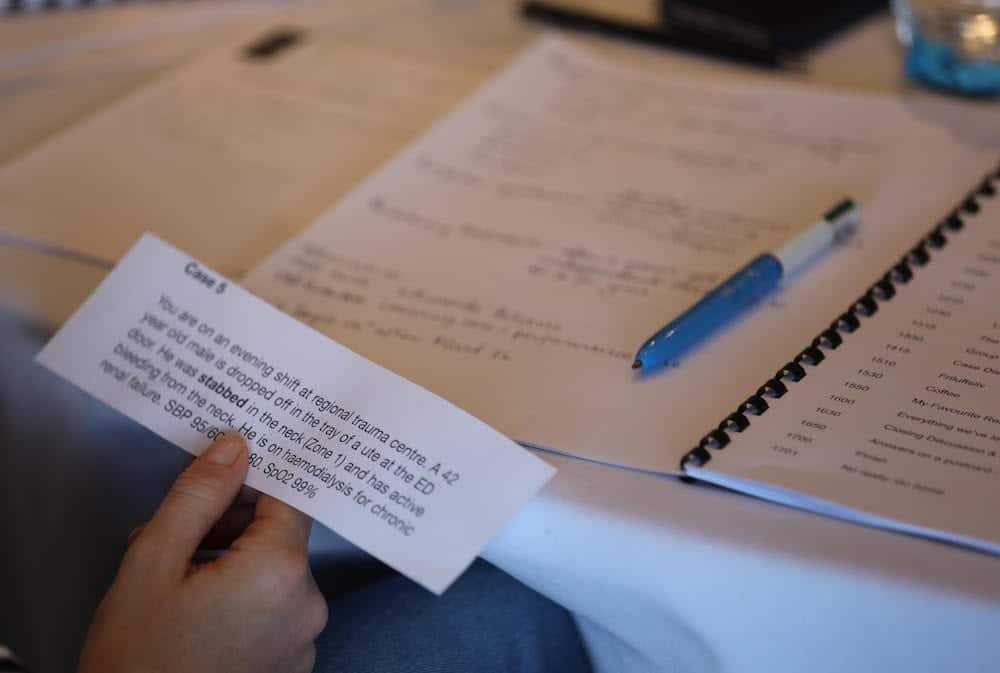
Resuscitology is built on the following principles:
- Faculty expertise should be continuously available throughout – not packeted in lectures.
- Fresh air and movement are important and necessary – invigorating locations are the backdrop for regular friluftsliv sessions, in which absorbing activities give our minds and bodies a break. Mindful activities such as juggling, unicycling, or other ball games can help us aim for flow states or just have fun for fun’s sake.
- A small group facilitates deeper sharing of vulnerabilities and an openness to our learning needs. We’re all in this together.
- Good resuscitation doesn’t begin in the resus room. You need the right environment and systems and culture and team. And to build this you also need the right knowledge, skills, and attitudes. Achieving that requires a sustainable framework for organising your work and your home life. These interdependent facets are hard to achieve but reinforce each other, and we have to work on all of them. This ‘Resuscitology Layer Cake’ provides the fabric for talks by all of the faculty. Learn about career sustainability from Cliff, lifelong learning from Chris, reflecting and improving from Nat, building teams from Karel, improving systems from Brian, teaching from Geoff, and more.
- Where possible we target individual learning needs. For example, time is made available in breaks and during evening drinks to brush up on basic echo skills or practice airway management or cover a range of other critical care topics. The faculty want to be used!
- Our space is ours. There’s no ‘home time’ on Day 1. Participants are encouraged to stay for evening drinks and dinner and continue the conversation as long as they wish, which is why an overnight option is included.
- Balance is important. As well as deep case discussions, clinically-orientated games and challenges lighten the atmosphere
- We believe in multispecialty and multiprofessional resuscitation. Case-based education means there is something for everyone. Nurses, paramedics, and trainees are welcome to contribute to the conversation and have considerably reduced attendance fees.
The feedback from Resuscitology #1 – collated both at the end of the course and after four months – showed we achieved what we set out to: powerful learning, deep connection, and most importantly helping participants leave with plans for lasting positive change. And it gave us ideas on how to improve things further. Which we can’t wait to do! Course dates and registration details are at Resuscitology.com
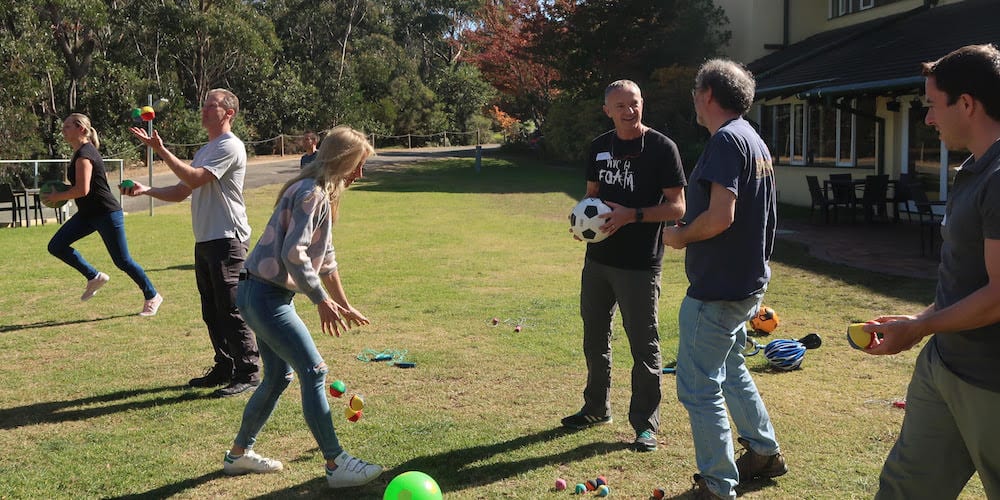
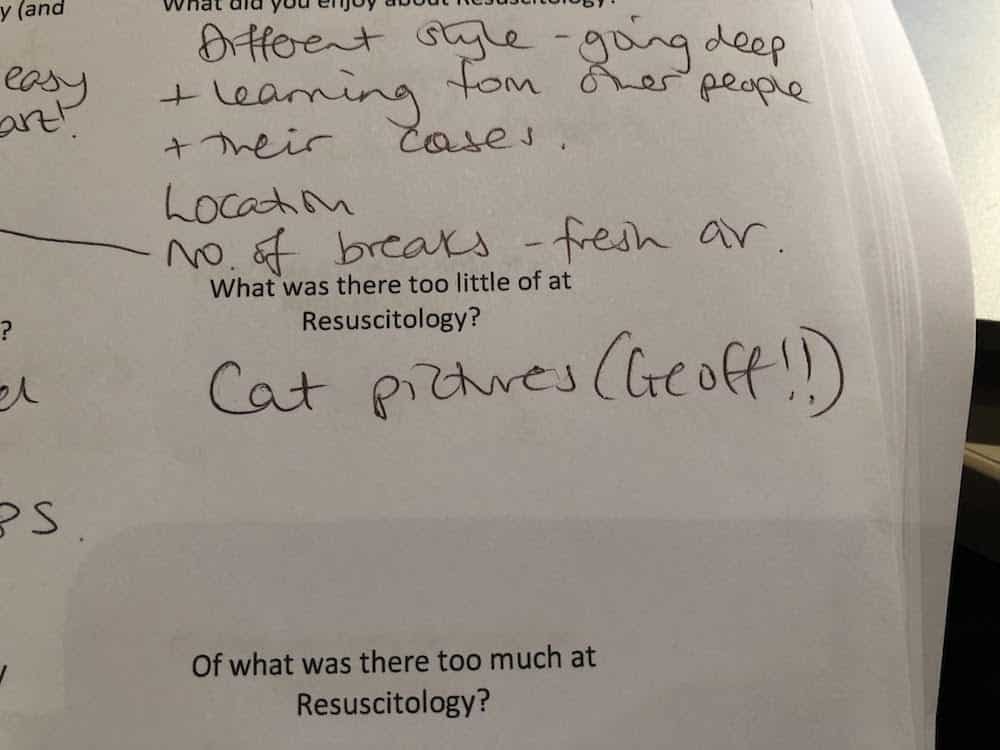
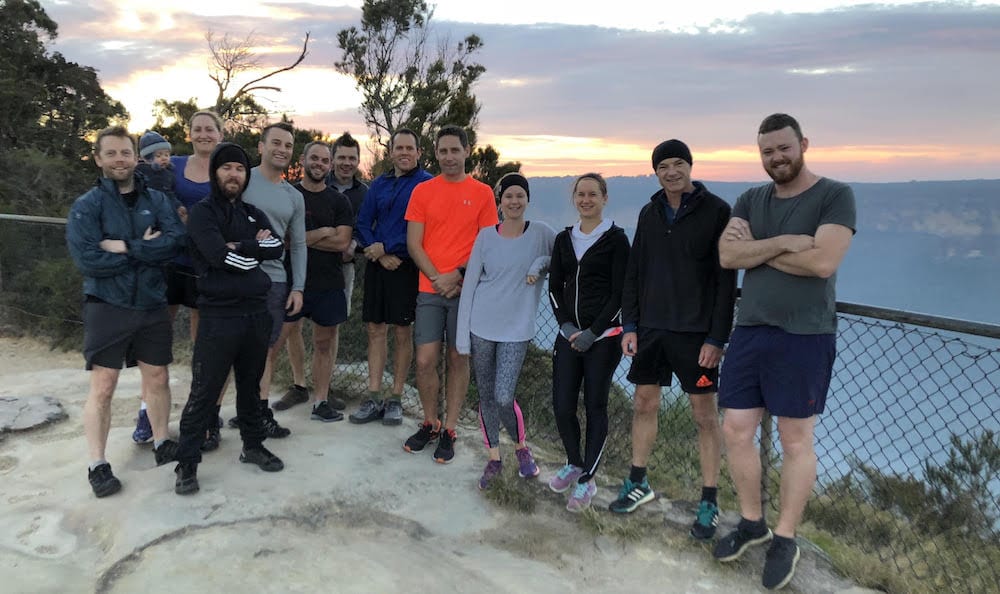

Chris is an Intensivist and ECMO specialist at the Alfred ICU in Melbourne. He is also a Clinical Adjunct Associate Professor at Monash University. He is a co-founder of the Australia and New Zealand Clinician Educator Network (ANZCEN) and is the Lead for the ANZCEN Clinician Educator Incubator programme. He is on the Board of Directors for the Intensive Care Foundation and is a First Part Examiner for the College of Intensive Care Medicine. He is an internationally recognised Clinician Educator with a passion for helping clinicians learn and for improving the clinical performance of individuals and collectives.
After finishing his medical degree at the University of Auckland, he continued post-graduate training in New Zealand as well as Australia’s Northern Territory, Perth and Melbourne. He has completed fellowship training in both intensive care medicine and emergency medicine, as well as post-graduate training in biochemistry, clinical toxicology, clinical epidemiology, and health professional education.
He is actively involved in in using translational simulation to improve patient care and the design of processes and systems at Alfred Health. He coordinates the Alfred ICU’s education and simulation programmes and runs the unit’s education website, INTENSIVE. He created the ‘Critically Ill Airway’ course and teaches on numerous courses around the world. He is one of the founders of the FOAM movement (Free Open-Access Medical education) and is co-creator of litfl.com, the RAGE podcast, the Resuscitology course, and the SMACC conference.
His one great achievement is being the father of three amazing children.
On Twitter, he is @precordialthump.
| INTENSIVE | RAGE | Resuscitology | SMACC

Thank all of you for your passion ,as this permits us to follow your thoughts,ideas ,reccomendations .You have changed our daily practise,you give us connectivity ,pleasure and you are WITH US even though we have never met.You belong to HUMANITY because you share with us.
BRAVO!
efi kara
anaesthesiologist
Greece
Thanks Efi – all the best!
Chris